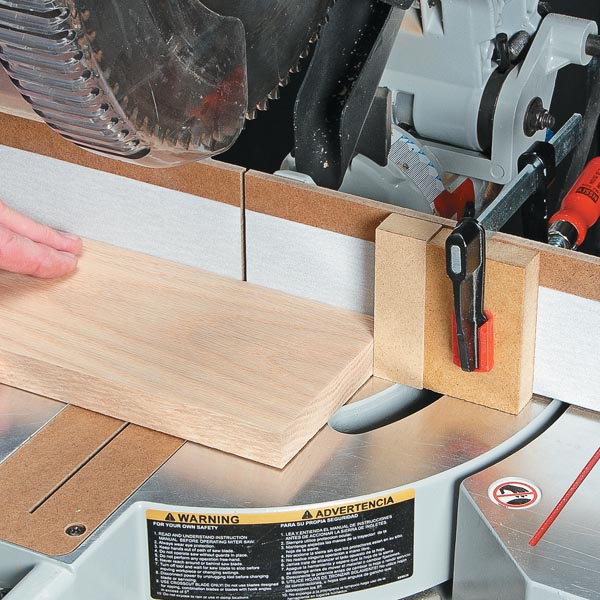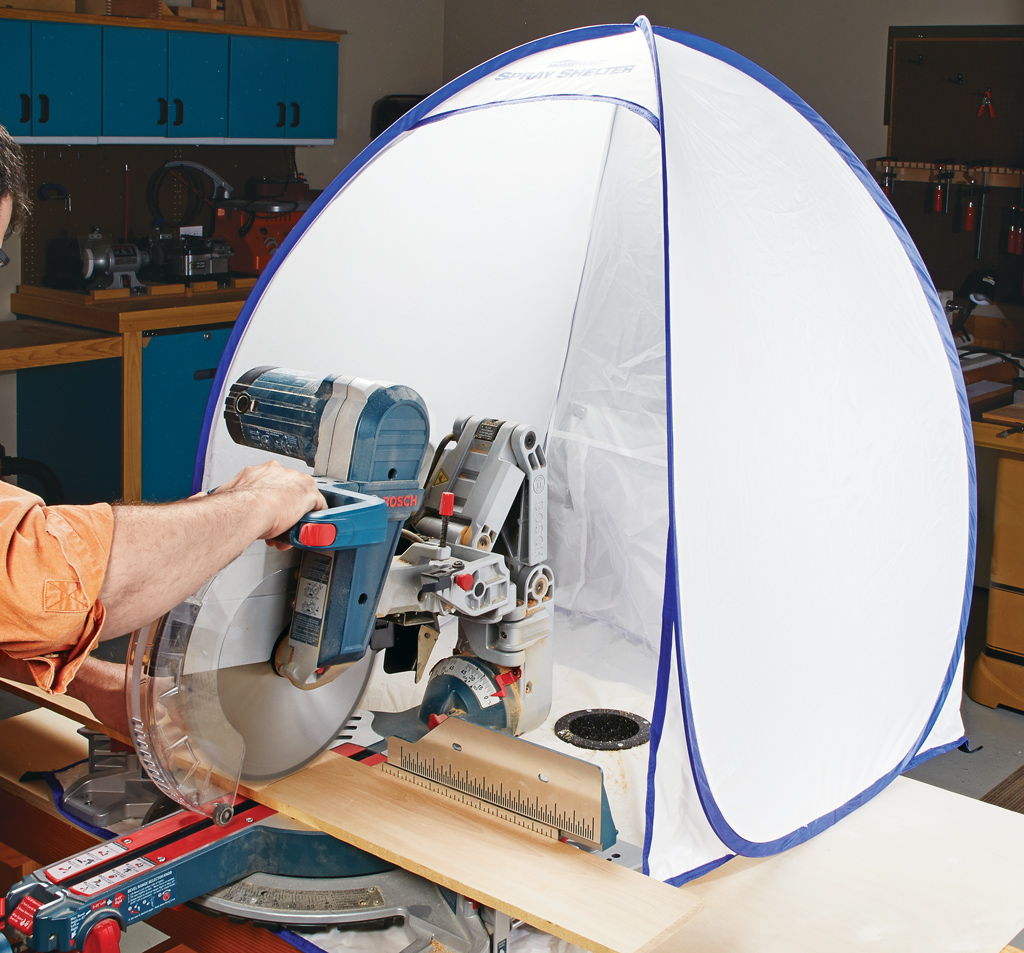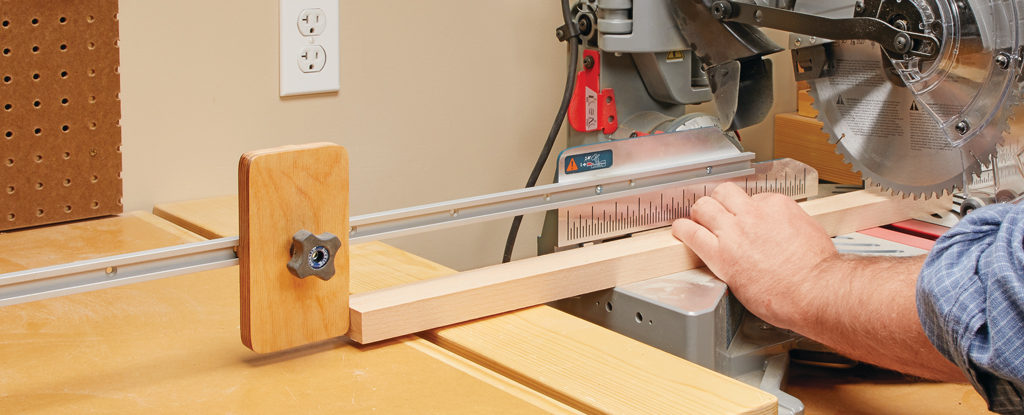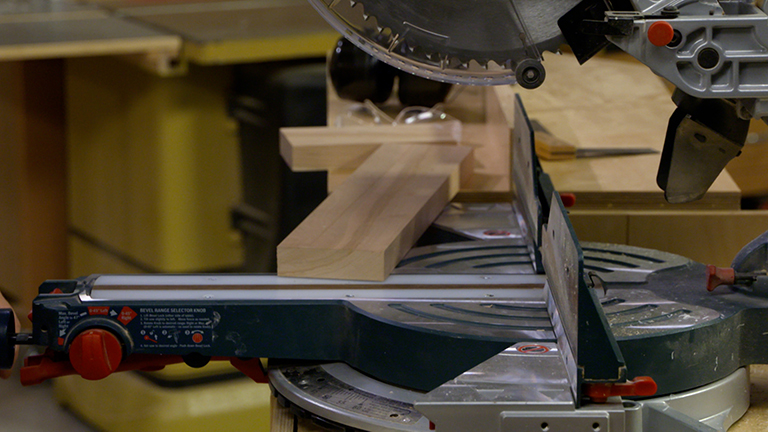You’ll find a miter saw in just about every woodworking shop. But I’ve found that most people use the saw mainly for roughcutting long boards to length. The truth is a miter saw can make clean, square crosscuts just as accurately as your table saw. All it takes are a few, simple techniques and these tips.
Getting great crosscuts from your miter saw begins with making sure the saw is set up for the task. First, the fence should be flat and square to the table. Next, the blade needs to be set square to the fence. Finally, check to see whether the blade is square to the saw table. (Follow the directions in your owner’s manual to make any necessary adjustments.)
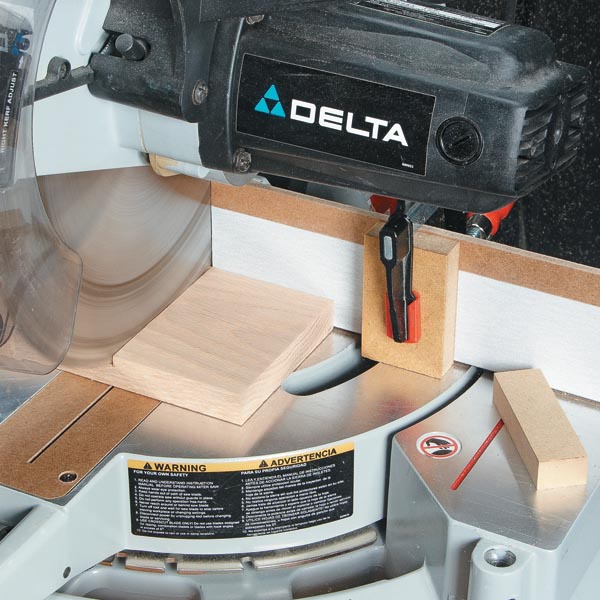
With the miter saw set up, you’re ready for a few upgrades. One of the biggest things you can do to improve how your saw cuts is to get a fine crosscut blade. Depending on its size, a top-quality crosscut blade will have 60-100 teeth. And the shape of those teeth means almost as much as the quantity. To start with, the top of the teeth are beveled to score the edges of the cut. Another thing to look at is the hook angle — how much the blade leans into the cut. Low or even negative hook angles are best. The teeth will slice cleanly into the wood and are less likely to cause chipping. This also prevents the blade from grabbing the workpiece.
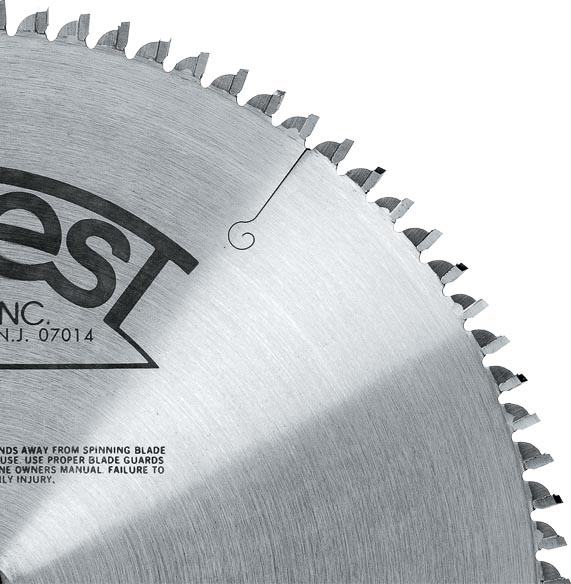
In order to get the cleanest cuts from any saw blade, you need to prevent tearout. This happens when the fibers of the wood are unsupported where the blade exits the workpiece. And there are two primary places where this happens when cutting with a miter saw — along the bottom face and back edge of the workpiece. To stop tearout in its tracks, you need the table and fence of the saw to back up the workpiece right next to the blade. However, most saws aren’t set up this way.
To create a zero-clearance opening in the table, you can make a new insert just like you would for a table saw. To close up the large gaps found in the fences of most miter saws, I simply attach an auxiliary fence made from 1/4" hardboard. I like to face the hardboard with adhesive-backed sandpaper. This keeps the workpiece from creeping during a cut. And I cut a small rabbet on the bottom edge for dust relief. Use double-sided tape to make it easy to replace.
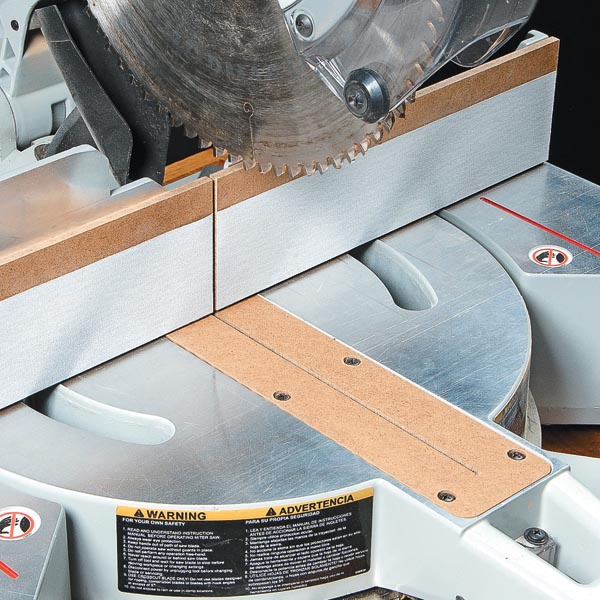
One technique I want to talk about is cutting identical small pieces. A stop block attached to the fence makes this easier. The key is keeping the small part from binding between the blade and stop block. Otherwise it could be thrown out. The solution is to position a spacer between the workpiece and the stop block. Before making the cut, slide the spacer out. Now the part can’t bind. (Just be sure to account for the width of the spacer.) You don’t need to settle for rough results with your miter saw. All it takes are a few upgrades and the right techniques to get perfect crosscuts every time.
